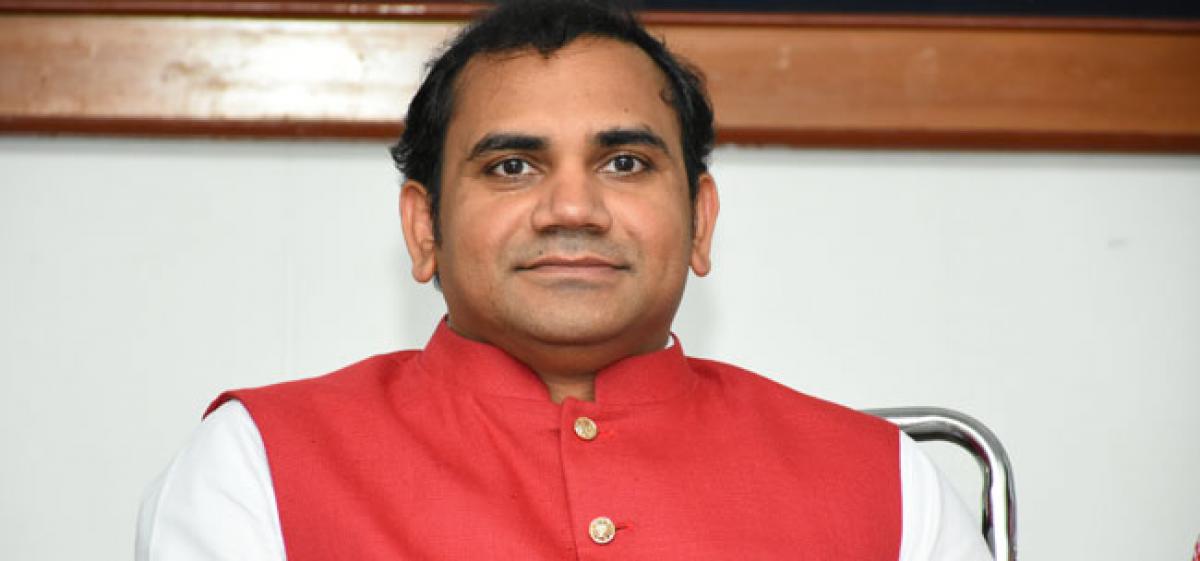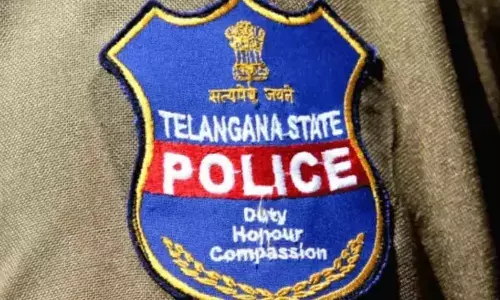Are we prepared enough to effectively handle natural disasters like Titli?

India owns 75166 kms of coastal line and Andhra Pradesh, the Southeastern state of the Indian peninsula possesses 974 kms of coastal line Known popularly as Coromandel Coast, it is home for rich heritage and diversified cultures
Visakhapatnam: India owns 7516.6 kms of coastal line and Andhra Pradesh, the South-eastern state of the Indian peninsula possesses 974 kms of coastal line. Known popularly as Coromandel Coast, it is home for rich heritage and diversified cultures.
The humid and tropical coastal Andhra Pradesh is often subjected to a variety of natural calamities like storms, floods, and droughts periodically. Though India boasts of having robust space research and enough resources to predict the onset of cyclone with precision, it often appears helpless in communicating its people when they are in trouble.
The communication gap that exists between the Indian Meteorological Department (IMD) and the respective state officials often creates confusion. During the recent Titli cyclone, the district authorities were unaware of exact timing and place where the cyclone would reach the Srikakulam district.
The IMD predicted that the cyclone may hit the land at Gopalpur in South Odisha close to Northern AP. This was an underestimation, which left the authorities ill-prepared, causing a massive damage to the crops. Communication is important for all sorts of preparations starting from an ordinary fisherman venturing into the sea for fishing to the District Collector who plans to tackle untoward incidents.
When the Western Universities are able to suggest the governments on `how to communicate in the eve of natural disasters’, why shouldn’t India establish such research units and communication networks to reach people during natural disasters?
When a shopping mall that employs 1,000-2000 people would conduct mock exercises to create awareness to its employees on how to react and save lives in the wake of fire accidents, why don’t the governments take up such exercise in the coastal regions with hundreds of families, each with children aged and disabled? The National Disaster Response Force (NDRF) should involve the local universities, NGOs and the youth clubs in organising such awareness programmes to tackle disasters.
The Central and the state governments must focus on regulatory measures in safeguarding the marine ecology and environment by taking severe action on those who pollute the marine eco-system. The major oil drilling companies, petrochemicals and pharmaceutical companies and fertiliser manufactures are indiscriminately releasing the waste into the ocean.
This would drastically affect the flora and the fauna in the marine. Permanent measures must be taken to control oil spills, soil erosion and land slides in the sea coasts. Climate change also exerts enormous impact on the size of the sea levels, which may pose severe threat to the humanity.
Long term measures must be taken to mitigate the carbon emissions. The governments are in a haste to give aid only at the time of a calamities and it will offer only temporary relief to the coastal regions. States must gear-up to long term strategies for the effective coastal climate management.
The state of AP must adopt the following long term measures for effective disaster management; Countries like Japan that is prone to frequent earthquakes are building houses that wouldn’t harm the people in the wake of a disaster. We should learn from the experiences of the governments across the globe to build cyclone-proof houses.
Electricity poles, telephone and electric cables are the immediate victims of any wind or storm. The governments must explore the options of underground cable and electricity networks for the power distribution and communication.
Governments must work closely with the agriculture, horticulture and animal husbandry universities and engage them in the community development programmes. In the wake severe loss to the crop and plantations, the communities must have alternative strategies for growing short-term crops to generate income in a short time, apart from rising long-term crops.
Relief and aid in our country relies on the estimations of the government authorities during the natural disasters; the expert committees would generally suggest measures without having a comprehensive idea on the exact loss incurred. The local agricultural experts must also be included in the team.
In the case of Srikakulam, the loss incurred to plantations is irreparable and long lasting; it is not possible to compensate the victim who loses everything due to natural disaster. It may take at least 10 years for them to earn revenue if replanted the horticultural units today.
The governments must compensate them with continuous economic support, apart from rebuilding the lost plantations. Since Srikakulam is known for banana, coconut, mango and jack fruit plantations, apart from the immediate financial relief, the farmers must get long term support of the governments once in every 5 or 10 years.
Finally, instilling hope in the communities which were worst hit by the natural calamities is very important. Apart from taking the immediate measures, long-term strategies must be adopted to train the communities to handle the challenges they encounter during natural disasters. (Dr Srinubabu Gedela, completed Ph.D from Andhra University and Post-doctorate from Stanford University. The research work is part of Pulsus Group CSR activity.)














